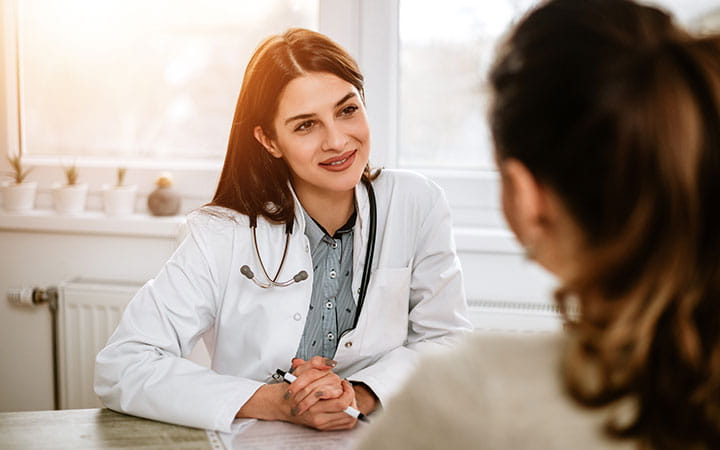How a Cardiologist Can Aid Your Cancer Treatment
January 30, 2019

A cancer diagnosis is frightening. It usually draws the focus of the patient, family and doctor to devote all their energy and attention toward conquering this disease.
The great news is cancer therapy has improved dramatically over the past several decades with a notable increase in survival rates. So how can cardiologists aid in a cancer cure?
Why a Healthy Heart is Important
Most patients don’t realize the importance of a healthy heart for the treatment of cancer and for surviving it.
The truth is, cancer treatments such as chemotherapy and radiation carry some cardiac risk, either immediately or later on. For example, radiation therapy to the chest is associated with increased risk for heart attacks and malfunctioning heart valves.
Similarly, certain types of chemotherapy can potentially cause weakening of the heart muscle, heart failure and death. Unfortunately, although most complications occur during cancer treatment, some may occur months to years after cancer cure. In fact, at 10 years after cure, breast cancer survivors are more likely to die of heart disease than cancer recurrence.
Cardiac complications can also occur in the middle of treatment. When this happens, chances of cure are significantly decreased because, without a healthy heart, treatment options become limited.
Often the most efficacious therapies need to be stopped or interrupted. Tragically, even short interruptions can lead to spreading of the cancer and decrease chances of cure.
Important fact: If your heart is healthy at the beginning of cancer therapy, it is less likely that cardiac complications will occur during treatment. In other words, patients with uncontrolled or undiagnosed cardiac conditions before cancer are more predisposed to the potentially problematic effects of cancer therapy.
The Advent of Cardio-Oncology
Cardio-oncologists are cardiologists with extensive knowledge of cardiovascular side effects of cancer therapies. Their role is to evaluate patients, diagnose pre-existing cardiac disease, reduce cardiovascular risk and monitor cardiovascular health throughout the patient’s battle with cancer.
This practice often ensures that patients get treated without complications, which means better chances of cure.
Cancer patients receiving potentially cardiotoxic therapy are seen by our cardio-oncology team and evaluated before initiation of treatment. Their cardiovascular health is optimized to ensure the best cancer treatment can be given without interruptions.
Cardiac function is monitored regularly with advanced imaging techniques to detect any small abnormality at the earliest and most reversible stages. Similarly, cancer survivors who have not benefited from this specialty and have been exposed to cardiotoxic treatment in the past are evaluated and, if needed, treated with the most effective, innovative heart therapies available.
When cancer and heart health are concerned, time is life.
Guilherme Oliveira, MD is the Director of the Advanced Heart Failure & Transplant Center, and Director of the Cardio-Oncology Program at University Hospitals Harrington Heart & Vascular Institute.
Related Links
The Cardio-Oncology Program, a collaboration between University Hospitals Harrington Heart & Vascular Institute and University Hospitals Seidman Cancer Center, is one of a select number of institutions nationwide offering this service.
Heart Care for Cancer Patients
For more information, or to schedule an appointment with the Cardio-Oncology team at University Hospitals, call 216-844-3800.
Tags: Cancer, Cancer Treatments, Heart Health


